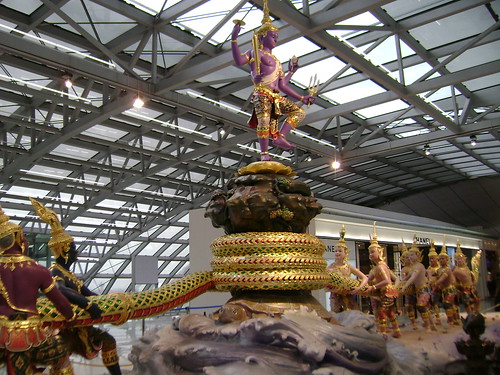brihaspati wrote:An interesting aspect of the Malaysian political thinking is the Rahmanian doctrine of a "secular state with a state religion". In Malaysia, this curious doctrine is implemented as a supposedly "secular state" which has an officialy recognized "state religion of Islam". We have to remember that the proponent of this doctrine was the founder of the OIC and a host of "Islamocentric" organizations in areas which we normally consider out of theological concerns - such as finance etc.
The "secular with a state religion" doctrine is interesting in the sense that the Islamic world at least has an example of a state which is both "secular" as well as acknowledging the supremacy of one faith over all others from the viewpoint of the state.
Is it surprising that a "secular state with Islam as state religion" is actually wary of collaborating militarily with India?
Malaysia before Mahatir was a real secular country.
It was Mahatir, who wanted to out Islam Islam. He was the son of Mohamad Iskandar, who was of half-Indian origin. Therefore, he had a chip on his shoulder since the Indians who were brought to Malaysia by the British were labourers and continue to be so; at least the majority.
I understand how those who are not 'pure' Muslims ie. of Arabic descent, out Islam Islam in Malaysia and elsewhere. I mention this to show how Mahatirs mind must have worked.
In Bengali we have a saying that natun Musolam beshi Allah Allah kore ie. a convert shouts Allah Allah a little too much!
A certain relative converted to Islam in Malasia having married a Malaysian citizen of Indonesian orgin (This relatives family, mostly doctors, lived in Malaysia for years) converted to Islam. Extraordinarily, he was more orthodox than his wife! No smoking and no drinking was allowed! And his official name was Haji ABCD Sengupta! What a gas!
His attitude was most irritating but since I have read something of Islam, I put him in a spot! Inerestingly, his children were hep! And I might add, hardly Islamic! They were however wary of the Moral Police!
This being the attitude I presume Mahatir had, he brought in a fierce national Malay awakening with his Bhumiputra policy, where all sorts of reservations, including for education, employment, number of birth (more the better) and medical care.
Malaysia being an Islamic country is understood.
However, why are they 'secular'?
The Chinese control their economy. They hate them, but they can do nothing about it, since Malays are lazy (Mahatir admit this!). The Chinese will not allow Malaysia to be Islamic!

